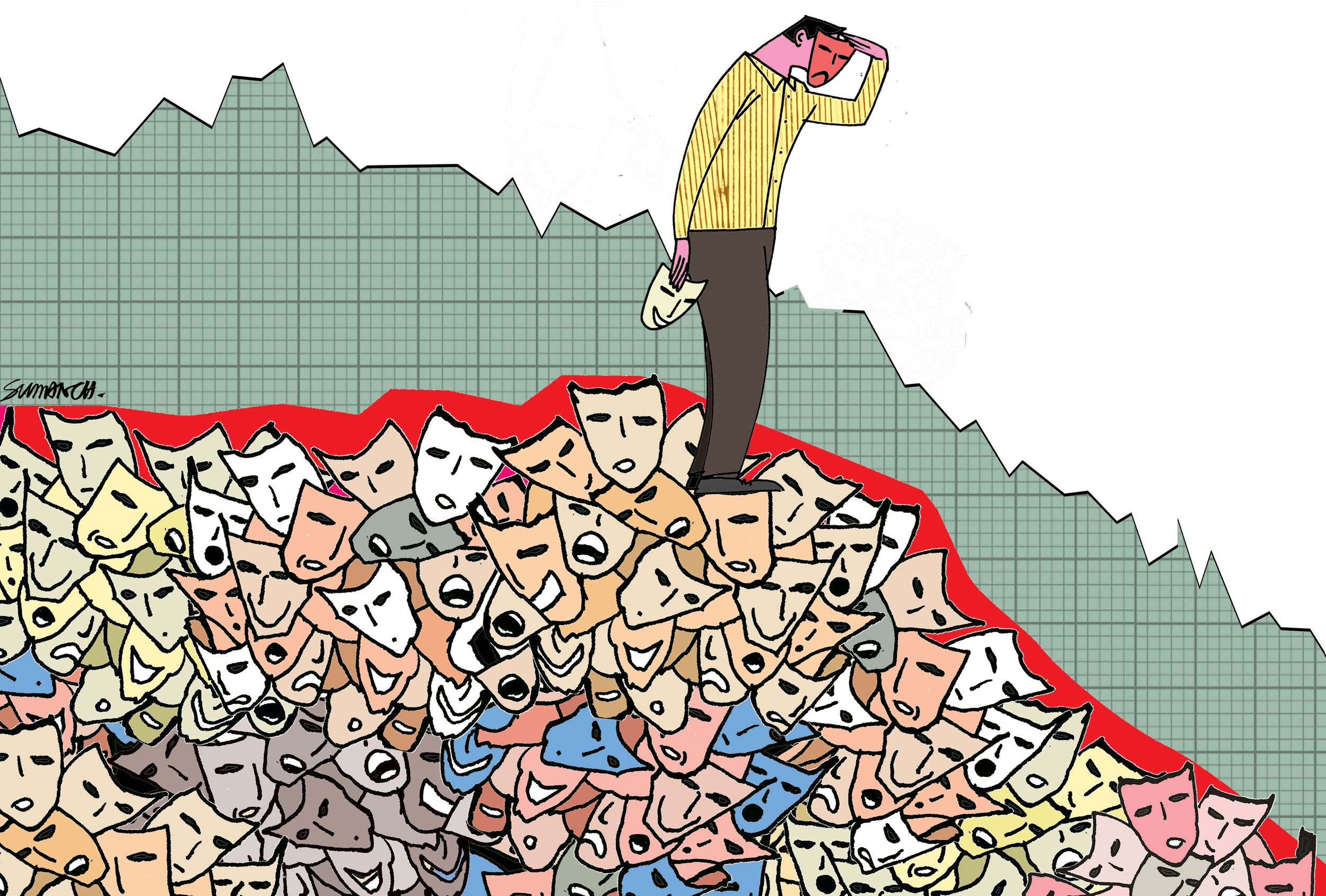The irony of the markets is that both the buyer and the seller think that what they are doing is right. We have witnessed a big spike in volatility in recent months because of various global and domestic factors. These fluctuations have been amplified by investor sentiment. During the market rally, complacency may have set in and valuations were being ignored. During the recent correction, investor sentiment has caused the market to swing more than expected.
Portfolio theories and rationale have been unsuccessful in explaining these market swings. The role of emotions, like greed and fear, is very important while undertaking any major investment discussion.
Behavioural finance is an evolving field that studies how psychological factors affect decision-making. It also argues that emotions and sentiments play a crucial role in determining the behaviour of investors in the market place and very often they act irrationally because of the influence of psychological factors.
The key areas that behavioural finance focuses on are prospect theory, heuristics and biases, as these tend to influence decision-making while building portfolios across asset classes. Why do investors generally tend to hold on to investments that are losing money and sell investments that make profits quickly? This tendency or behaviour is explained by the prospect theory.
Human beings are risk-averse in profits and risk-takers in losses. Certainty effect says that people place much more weight on the outcomes that are perceived to be more certain than those that are considered merely probable. But history suggests that exiting weak companies or stocks and holding on to the top performing stocks transpires into better returns. After all, the legendary investor Warren Buffett has done just this.
Behavioural finance also involves the study of heuristics, which relies on experiences to make investment decisions, rather than scientifically looking at data. Imagine an investor who started investing in equities in 2003 when the Sensex was trading below the 3000 levels.
In spite of the crash of 2009, these investors would have made excellent returns in equities and will certify that equities are the best bet in the longer run. Now ask an investor who has started saving in 2007 whether he will invest in equities, the chances are that these investors will not want to look at equities and will be more comfortable with fixed deposits.
Recent experiences tend to colour our decision-making process and this tendency of relying on the past to determine future decision-making is explained by heuristics. Investors may be inclined towards various types of behavioural biases which lead them to make cognitive errors.
Warren Buffett says that volatility is the friend of a long term investor. And this does hold true because in a correction, a long-term investor can invest further funds at cheaper valuations, thereby increasing his potential returns in the long run. Market noise is generally always about the near term, while fundamentals hold true and emerge in the longer run.
People may make predictable, non-optimal choices when faced with difficult and uncertain decisions because of heuristic simplification. Investors today are extremely confident about real estate making money and are even willing to leverage. This is because real estate has been one of the best performing asset classes in recent years, but we tend to forget that the years from1997 to 2003 were extremely poor.
In most cases, property prices were actually lower. This was also evident in 2007, when most investors were confident that the infrastructure story in India will continue forever and stocks will rally regardless of fundamental valuations. This bias is known as overconfidence bias and all of us are affected by it at some point in our lives.
Traders are especially prone to it as, despite the poor strike rates, people continue to trade in equities and pay hefty brokerages while their own portfolios bleed. The other trend that we have witnessed is that contrary to any other market, equity markets and financial markets tend to attract more flows when assets are expensive. This is because the past returns look very good at such times.
Bulk of the inflow tends to come in around peak markets and very little comes at market troughs. People do not want to miss the bus in a bull rally, which results in a herd mentality causing bubbles and bursts. This kind of behaviour is also known as herding bias.
Human beings are prone to regrets while buying a house, investing in stocks or any other goods. When my real estate broker calls me, I always tell him that if real estate prices come down by 10 per cent, I will buy a house. Similarly, a lot of investors feel markets can correct 10 per cent at any level. This happens because we believe we have missed investing and hence prices will correct. This is known as a cognitive dissonance bias or Gamblers’ Fallacy.
The bias occurs when an investor operates under the perception that errors in random events are self-correcting. For instance, if a coin is tossed two times and it lands on heads each time, an investor who feels that the next flip will result in tails can be said to be suffering from this bias. Understanding of these behavioural biases can ensure that investors are able to avoid common investment mistakes.
Similarly, for wealth advisers, the study and understanding of these biases can greatly improve their relationship with clients and enhance their ability to deliver the desired outcomes on the portfolio. Once recognised, the bias can be addressed and set aside so as to make rational choices without letting emotions and impulses influence investment decisions. This gives your portfolio a chance to truly flower in the long run.
The writer is executive vice-president and head of investments at Motilal Oswal Wealth Management Limited










